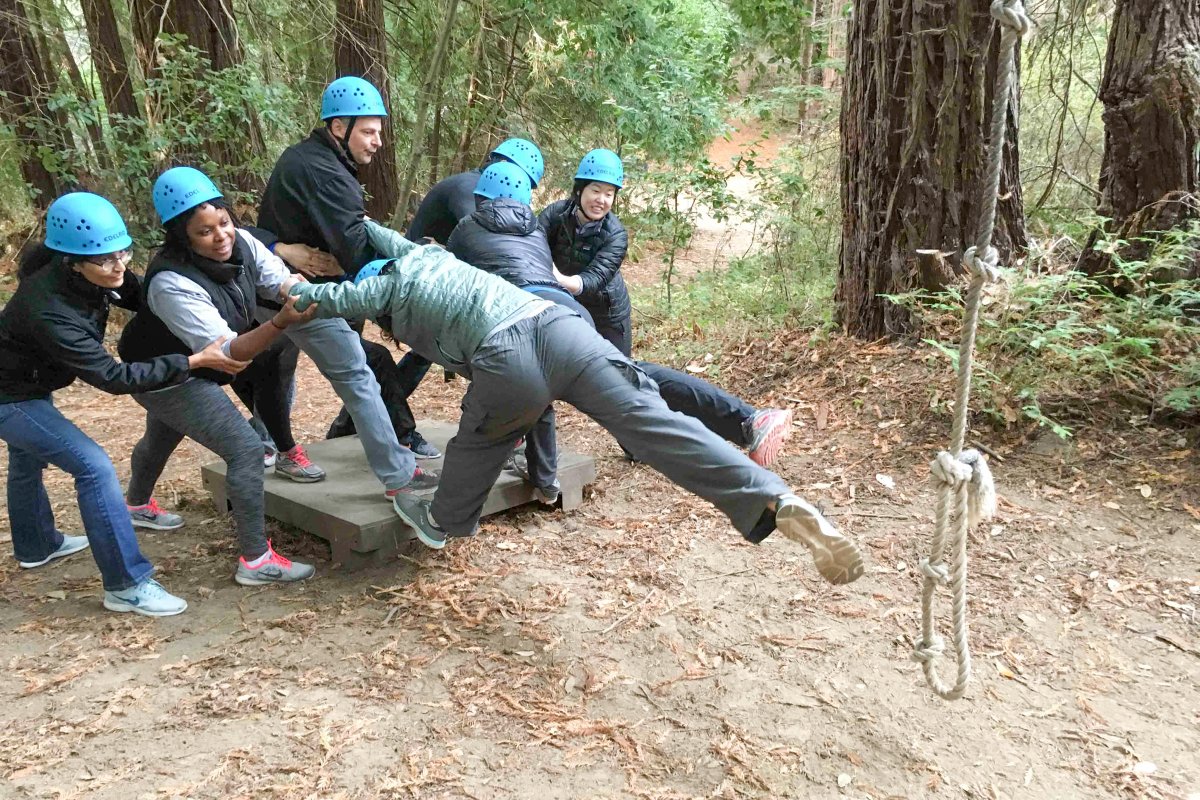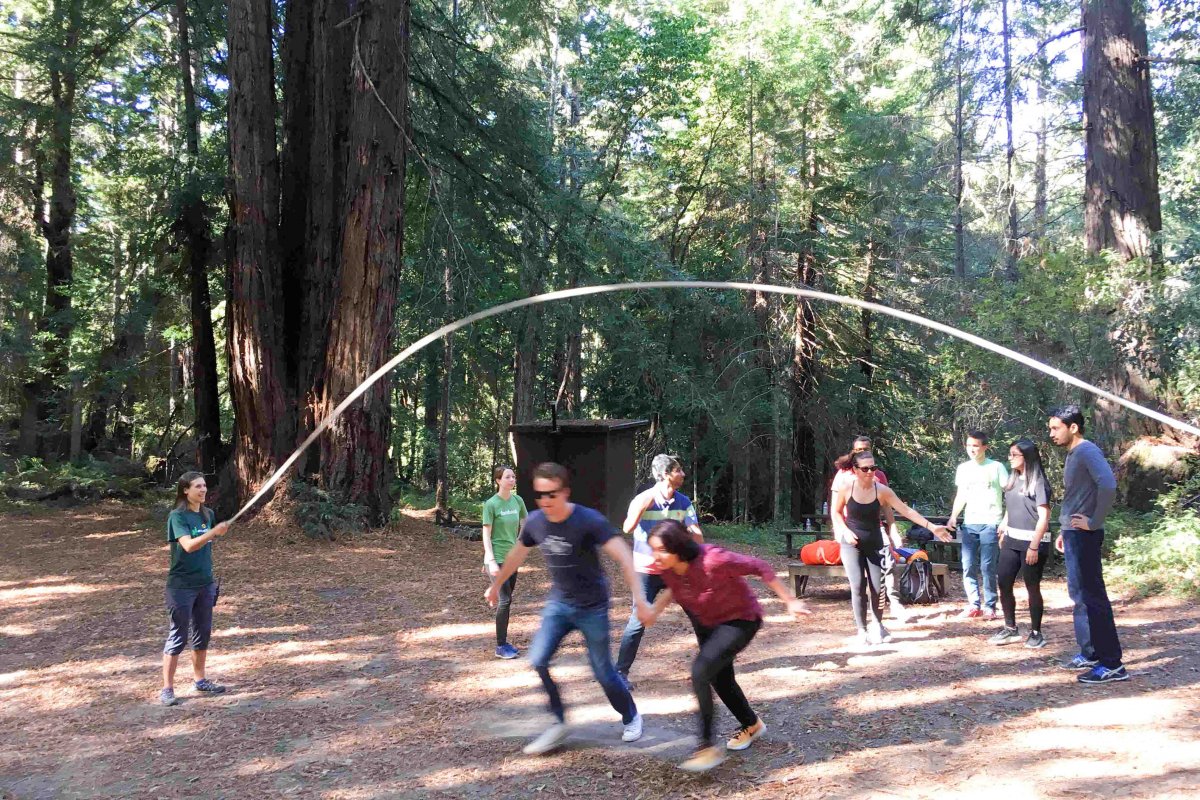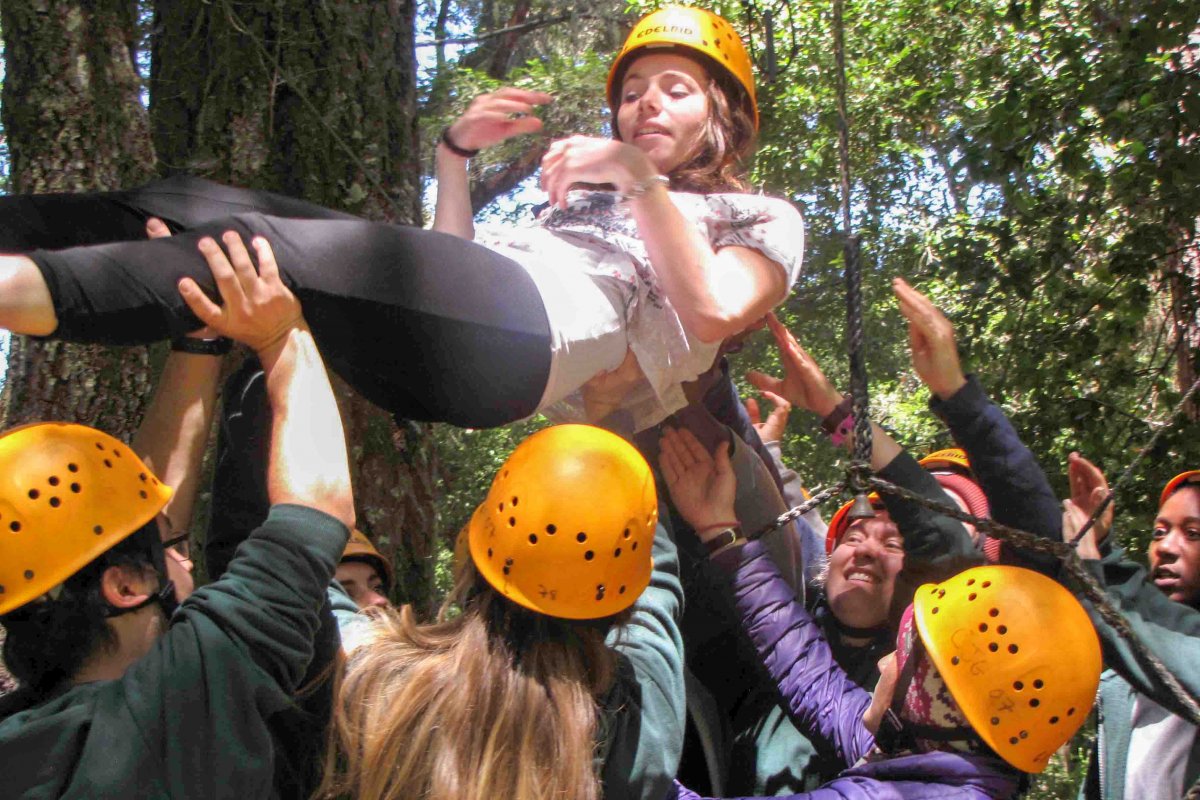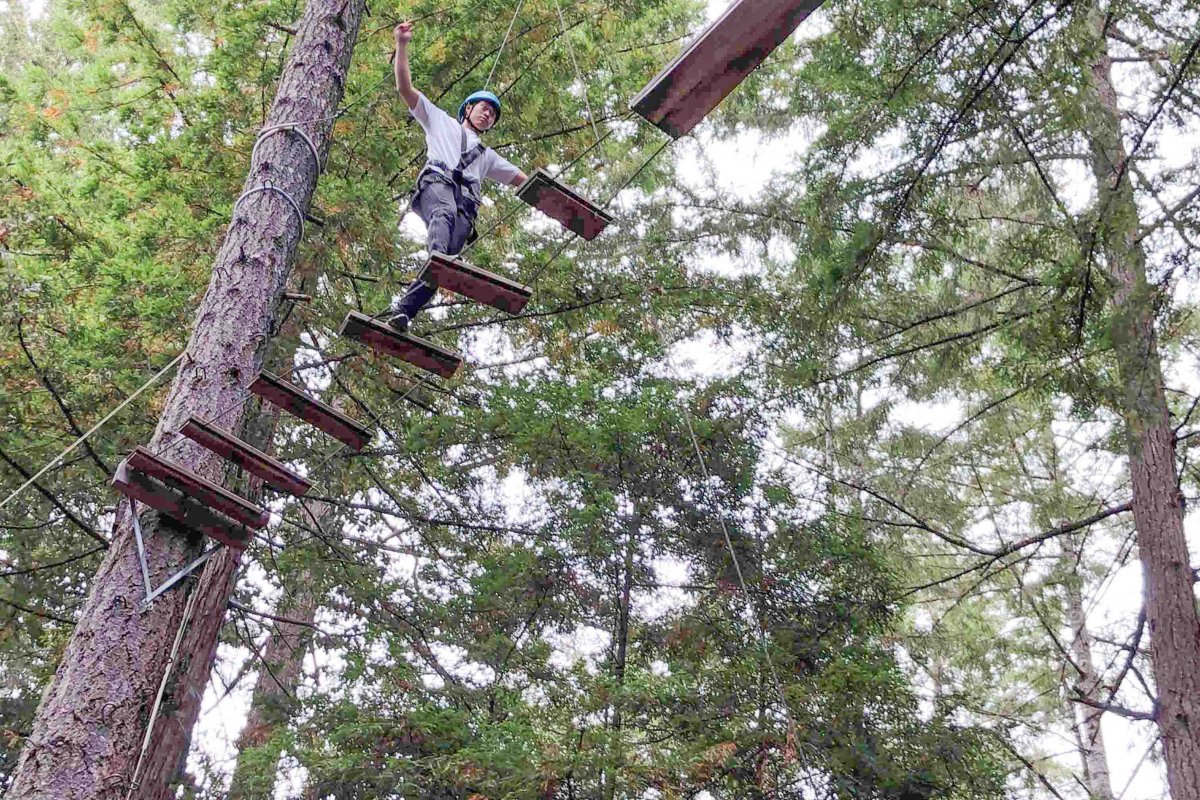Life Lessons from the Challenge Course at YMCA Camp Jones Gulch
Written by Xander Tartter. Special thanks to contributions from two of our most experienced facilitators: Tom Courry and Reno Taini.
We learn best when it is through our own experiences. At the Challenge Course at YMCA Camp Jones Gulch, we encourage groups of all ages to learn from their experience. Our Low Ropes elements challenge groups to work together as a team to solve a problem, while our High Elements challenge each individual to step out of their comfort zone and complete some obstacle 30-60 feet off of the ground.
Here is a small taste of what you might learn while you’re here that can help you at work, school, or home.
1. There’s almost always one more way to solve the problem.
We limit our opportunities for success when we focus on one solution to the problem at hand. At one of our low ropes elements, teams must work together to reach a rope swing dangling several feet in front of them without touching the “lava pit” underneath. Simply jumping for it or trying to use a stick to get it are both against the rules. Teams often get so focused on these solutions that they spend the first several minutes of the activity questioning the rules, rather than focusing on the resources available to them. Recently, a group solved the problem by supporting a particularly flexible person, who faced away from the rope. She stood on one foot, did almost a split and was able to miraculously kick the rope with her other foot, causing the rope to move forward and swing back toward the group. As I watched the group try this, I couldn’t help but think “that’s creative, but it’s not going to work.” And then it did. Just like the groups I work with, I was limited by my own prior beliefs about what would be successful. At the ropes course, teams learn that success comes easiest when they are open to new ideas and alternative solutions. When individuals get so invested in their solution that they ignore other suggestions, progress often becomes stymied.

2. Sometimes being brave enough to fail is the only way to succeed.
One of my favorite challenges at the ropes course involves a large jump rope. The rope is turned so that individuals must run under it to make it to the other side without touching the rope. But there’s a pattern that the facilitator does not disclose to them, e.g. they must go across only in pairs (the pattern can be significantly more complicated at the facilitator’s discretion). If anyone doesn’t follow the pattern, the facilitator says “Scratch!” and the entire group must begin again.
Most groups learn relatively quickly that the key to their success is trial and error. They must fail many times to discover what works and doesn’t work. For some, this activity can be among the most frustrating, because we are accustomed to activities having clear instructions and we like to be rewarded for our success rather than see immediate consequences for our failures. But, in fact, life is not like that. In real life, just like the challenge course, we must take risks and make mistakes to learn and grow.

3. The loudest ideas aren’t always the best ideas
But we tend to listen to them more. Countless times I have watched group after group struggling with a problem, when a solution I know to be effective has already been shared. Often that solution comes from one of the quietest voices in the group. Others don’t even hear it. Working on a group project for school? Make sure you are really listening to others especially if, like me, you tend to be one of the louder voices in a group. These same lessons can help a management team collaborate and work better together by making sure everyone’s voice is heard.

4. Simple instructions can lead groups to seek more complex solutions.
When the instructions are simple, our brains tend to fill in the gaps and make assumptions. In a common teambuilding activity, participants are asked to pair up with a buddy. Buddy A is instructed to make a fist and then Buddy B is told that they have one minute to get their buddy’s fist open. Simple instructions with a very simple solution: kindly ask your buddy to open their fist. But instead, more than 90% of groups resort to prying, tickling, or verbal abuse before they simply try asking. Confronted with such open-ended instructions, we tend to fabricate our own rules. As Occam’s Razor tells us, simpler solutions are more likely to be correct than complicated ones.
At the challenge course, countless life lessons can be learned, including how to have so much fun in a beautiful redwood forest.

Book a visit to our challenge course for a corporate retreat, school field trip, birthday party, or staff bonding event. You’ll learn way more from doing the challenge course, then you will from reading about it. Learn more at www.ymcasf.org/programs/ropescourse.